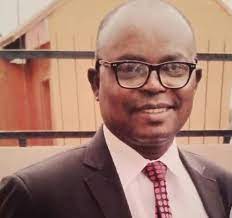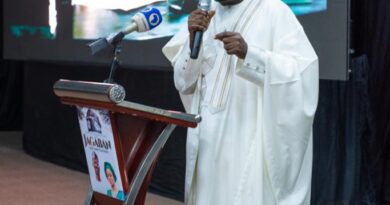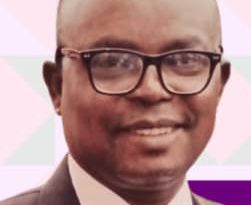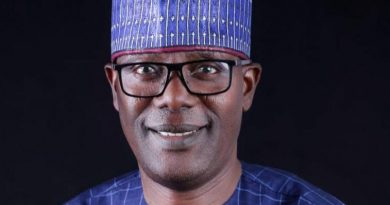Before We Repeat The ECOMOG Misadventure In Niger Republic…
By Bolanle Bolawole
turnpot@gmail.com 0705 263 1058
A “wind of change” is blowing across Africa but this time around, it is not the same wind of change that erstwhile British Prime Minister, Harold Macmillan, spoke about – the positive wind of change blowing away colonial rule and ushering in Independence to the African colonies of Britain. Macmillan made his famous speech to the parliament of apartheid South Africa on 3rd February, 1960.
The current wind of change sweeping across Africa, however, is that of military coup d’etat overthrowing so-to-say democratically-elected African governments and returning to power those that Samuel Edward Finer had referred to as the men on horseback – in one word, soldiers.
Of the 17 military putsches that the world has witnessed in recent years, 16 have been in Africa, with Myanmar (formerly Burma) the only exception. Coming closer home, we have witnessed military take-overs on Chad, Burkina Faso, Mali and, now at our very doorstep, Niger Republic, not to talk of the madness going on in Sudan!
This is the same Niger Republic that ex-President Muhammadu Buhari, after defecating on the presidential stool here, had boasted would defend him should Nigeria and Nigerians go after him to demand that he give an account of his disastrous stewardship. And as if to prove his closeness to the Nigerien president, Mohamed Bazoum, Buhari, after his ext from power, gleefully hiked a ride to an international event in Bazoum’s presidential jet. Now, the same Bazoum has been ousted from power and is under house arrest. His fate is uncertain and Buhari, days ago, was quoted as expressing worry and anxiety over his friend’s safety. Where you gonna run to now, Mr. Clueless, if we must quote the Jamaican reggae super star, Peter Tosh? If you run to the sea, the sea will be boiling/And if you run to the rock, the rock will be melting/You can run but you can’t hide/And you can’t bribe Jah-Jah (God)!
Reports have it that there are rumours and tremors of discontent in the military in some other West African countries. Expectedly, therefore, ECOWAS leaders have been in panic mode, meeting and rolling out a rash of sanctions and threats of outright invasion against the leaders of the latest military takeover in Niger Republic.
The popular opinion some years back was that military rule had become an aberration: Why is it suddenly becoming fashionable again? Politicians have themselves to blame for why military coups are resonating with the populace again.
Let’s see some of the reasons that have been offered. One is that African leaders, having learnt nothing, have forgotten nothing; even when, like Milton Obote of Uganda, they were given a second chance to make good where they had erred in their first coming. Whether as military Head of State or in their second coming as civilian president, both Olusegun Obasanjo and Muhammadu Buhari failed woefully, their second outing being more disastrous than the first. The same reasons that were given for the first rash of military coups in the 1960s through 1980s not only remain but have grown worse. Rather than lessen the people’s burden, our political leaders have increased the burden, like King Rehoboam the son and successor of his father, King Solomon.Corruption, rather than abate, has been on the rise, and with that, standard of living has dropped everywhere. Funds for infrastructural development have been embezzled. Roads are death traps. Hospitals are mortuaries. No power supply. No security and safety. Schools have lost their glory. No jobs. Inflation makes a mockery of whatever income that is earned. Hunger stalks the land.
In the midst of all of this, the rulers not only go about as if all is well, they even have the temerity to mock the people! “Let the people breathe”, they were quoted as taunting the people, their very electors – except, of course, they had rigged themselves into office and were there without the people’s mandate. In which case, they are imposters and not representatives of the people!
I compare their insensitive and audacious statement with the one credited to Queen Marie Antoinette before the 1789 French Revolution consumed her and her husband, King Louis XVI: “Let them eat cake!”
The French hapless poor had bombarded the palace crying of hunger, just like Nigerians cry today to their government that Nigeria has become one hell of a place to live in, but the best their government can do is taunt them, mock them! In the fullness of time Marie and her husband paid with their life; they were guillotined! A word for the wise there!
Coups are becoming fashionable again because the political leaders live life to the hilt in the midst of grinding and abject poverty of the people. And they shove it in our face! Take it or leave it, they seem to say! Or, better till, do something about it if you can! The more we cry that they reduce the cost of governance, the more opulent, indolent and audacious they become. Can we actually do something? Have they not seen us finish, as they say? But, yes, we can do something!
The 1776 American Declaration of Independence tells us we can when it says: “We hold these truths to be self-evident, that all men are created equal, that they are endowed by their Creator with certain unalienable Rights, that among these are Life, Liberty and the pursuit of Happiness. That to secure these rights, Governments are instituted among Men, deriving their just powers from the consent of the governed, That whenever any Form of Government becomes destructive of these ends, it is the Right of the People to alter or to abolish it, and to institute new Government, laying its foundation on such principles and organizing its powers in such form, as to them shall seem most likely to effect their Safety and Happiness…
“Therefore, a people have a right to decide the form or type of government they so desire at any point in time, be it democratically-elected or not. If democracy becomes demon-crazy, then, the people reserve the right to cast out the demon, like prayer warriors cast out demons and devils.
“Reduce the cost of governance” is the cry of the people so that resources freed can be made available for the provision of critical infrastructure. This is the rallying cry of the people. Cost of government is not only too high, it has, like fuel subsidy, become prohibitive and unsustainable. You cannot remove one but leave the other to fester. If a democratically-elected government will not hearken to the voice of the people in this direction, then, the people, in the exercise of their sovereign rights, reserve the right to try another route to achieve the same result.
It is their prerogative, which is inalienable. That is one reason coups are becoming fashionable again around us. The so-called lawmakers are usually the first to go in a coup; then the avalanche of political advisers and assistants and the retinue of party officials, deputy this and deputy that; assistant this and assistant that, etc. If, according to President Bola Ahmed Tinubu, one trillion Naira was saved in two months from “fuel subsidy is gone”, I can assure that five times that amount will be saved if we reduce the cost of governance by whatever means. Didn’t Nicollo Machiavelli teach us that the end justifies the means? A lean and efficient government is the rallying cry of the people at this point in time in African countries whacked by poverty and steeped in penury.These are issues that ECOWAS leaders led by President Tinubu should address rather than beat the drums of war over the coup in Niger Republic. They should address the cause or causes of coups itemised above rather than tackle the effects. It is easy to see that they are frightened and are only trying to save their own skin. Africans, especially the youth, are unhappy with the slavish mentality of their leaders to Western imperialism. Decades after flag Independence, it is still the erstwhile colonial masters that are still ripping off our resources and dictating atrocious policies to our leaders. When, then, will Africa come of age, to quote from the fiery speech of the Nigerian military head of state, Gen. Murtala Muhamed, to the OAU heads of state meeting in Addis Ababa, Ethiopia before his assassination on February 13,1976?
Will our leaders ever learn? Just like some hasty and rash decisions have heated up the polity for Tinubu at home, his rushing to the National Assembly to procure a licence to go to war against Niger Republic is hasty, rash and ill-advised. I dare to say that this is another ECOMOG misadventure loading. We frittered billions of dollars in Sierra Leone and Liberia and our economy was the worst for it. We lost lives and limbs. What were our gains? It is too early to embark on another ruinous venture, especially now that our economy is in very bad shape. Isn’t that what Tinubu himself have been telling us? Where, then, will the funds to prosecute a war in Niger Republic come from?
A country that cannot fund higher education; whose infrastructure is decrepit, whose youths and good hands “japa” on a daily basis; where workers are on strike; doctors are on strike, its people crying and dying of hunger – that same country wants to go to war, this time not only against one country (Niger Republic) but also against other countries like it (Mali, Burkina Faso, etc) that have sworn to stand shoulder-to-shoulder with it!
Before President Tinubu drags Nigeria into another ECOMOG-like misadventure, let him listen to this advice from one of our international relations experts, Prof. Babafemi Badejo. Titled “Questions about the impending war next door”, Badejo offered the following advice: “On July 26, 2023, Mohamed Bazoum, the elected president of the Republic of Niger, was pushed aside in a coup d’etat. This is an unfortunate development. However, the coup makers are consolidating and mobilizing the populace towards an acceptance of the development.
President Bola Ahmed Tinubu rightly called for an extraordinary summit of the ECOWAS Authority on July 30th and a communique was issued at the end of the meeting. The ECOWAS Authority put in place a number of sanctions, including closure of land and air borders between ECOWAS countries and Niger Republic; institution of an ECOWAS ‘no fly’ zone on all commercial flights to and from Niger and freezing of the country’s assets in ECOWAS states.
Going further, the ECOWAS Authority issued an ultimatum seeking the restoration of the overthrown order within seven days, and threatened the probable use of force for non-compliance and, in this regard, asked the ECOWAS Chiefs of Defence Staff to start meeting. A number of questions need to be answered before the Nigerian government goes to war:
1. Has the necessary resolution of the UN Security Council been sought with a certainty that there will be no veto making an ECOWAS war illegal as ECOWAS got stopped over Cote d’Ivoire?
2. Has costs and benefits analysis been done by the Nigerian authorities for the short, medium, and long-term, especially under the current financial problems Nigeria is facing?
3. Given the refusal to reimburse Nigeria’s efforts in Sierra Leone and Liberia in the past, is Nigeria able to fund a possible war with the Niger Republic as others in ECOWAS cajole her to lead and, as usual, bear most, if not all, of the yoke?
4. How will the ECOWAS leadership close Niger’s borders with Mali and Burkina Faso – countries with sympathetic military regimes to those in power in Niger and the possible availability of counter air power instruments?
5. Has Nigeria pondered on a perceived weak Niger Republic entering into wider alliance(s), including with other stronger governments, organized and unorganized terror franchises?
6. Has the Nigerian government carefully reflected on the Nigerien views, popularity or not, of the coup plotters and the implications of this for any military action?
7. Is Nigeria prepared to lead a process towards a truncated ECOWAS?
8. Is Nigeria acting swiftly to please external interests without a thoughtful consideration of the all-round implications for ECOWAS, Nigeria, and its people if a Libya-type internationalised war starts next door? Diplomacy is superior to threats of the use of force that may be difficult or impossible to implement. Preventing coups in West Africa is not by sanctions and threats but by addressing leadership deficit and corruption, curtailing negative external pressure, as well as the building of credible institutions to provide for the needs of the people”It could not have been better put! We know Tinubu is president of ECOWAS but his presidency of Nigeria comes first and is superior to that of ECOWAS. His commitment should first and foremost be to Nigeria before ECOWAS can think of coming a distant second. Nigeria is his pedestal and our interest comes first. If he loses his pedestal, he loses it all!
Former Editor of PUNCH newspapers, Chairman of its Editorial Board and Deputy Editor-in-chief, BOLAWOLE was also the Managing Director/ Editor-in-chief of THE WESTERNER newsmagazine. He writes the ON THE LORD’S DAY column in the Sunday Tribune and TREASURES column in New Telegraph newspaper on Wednesdays. He is also a public affairs analyst on radio and television.




